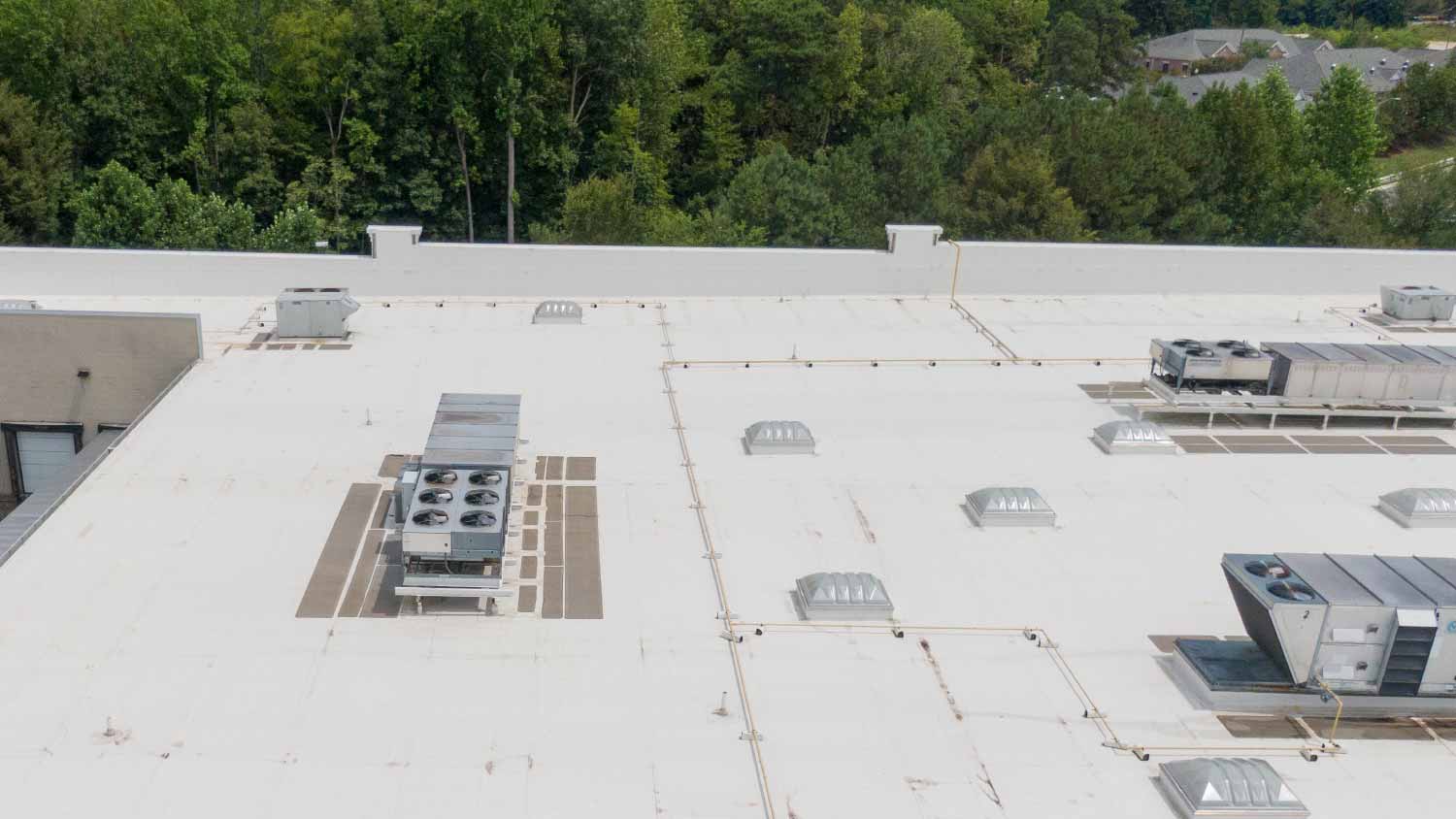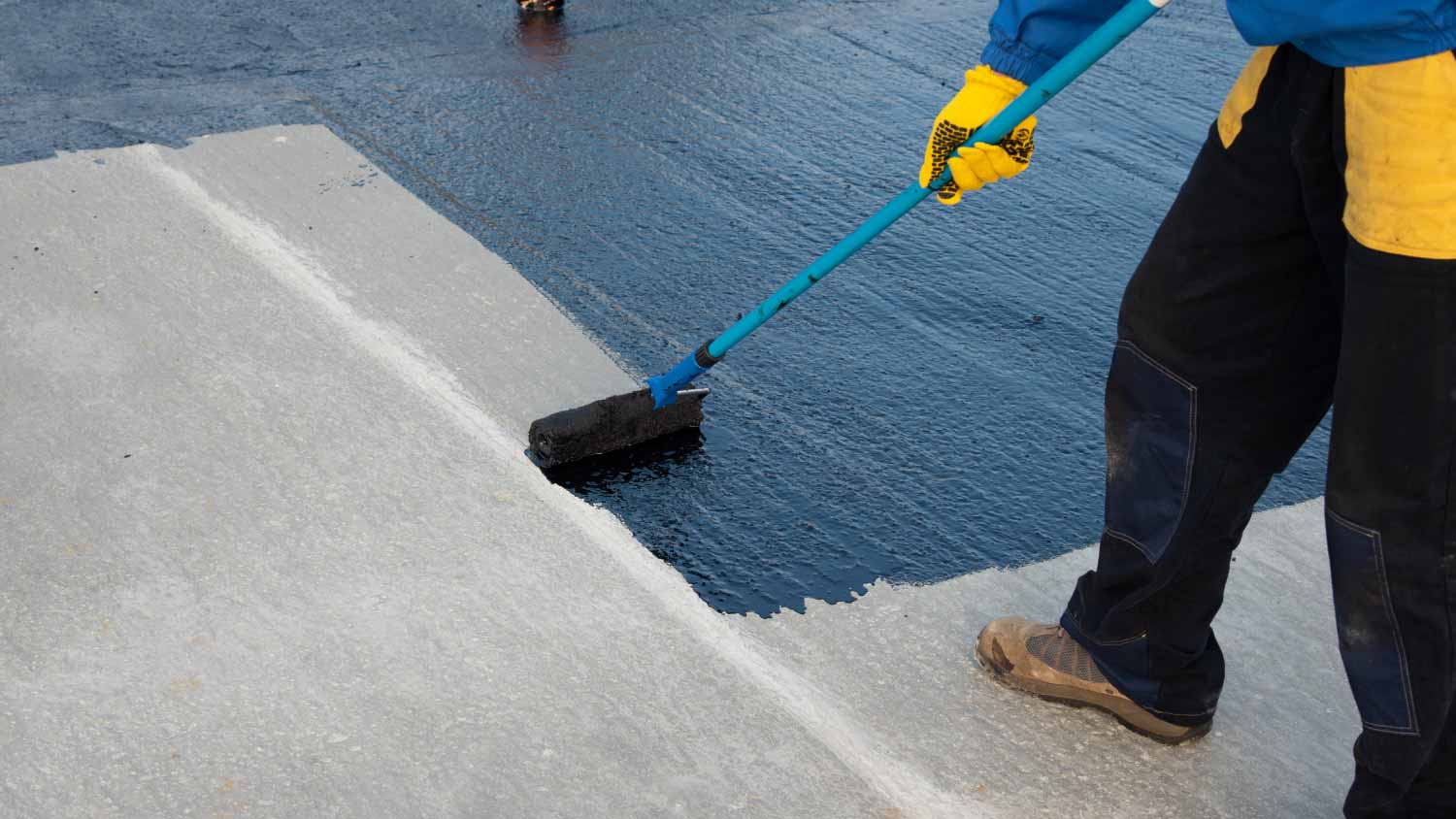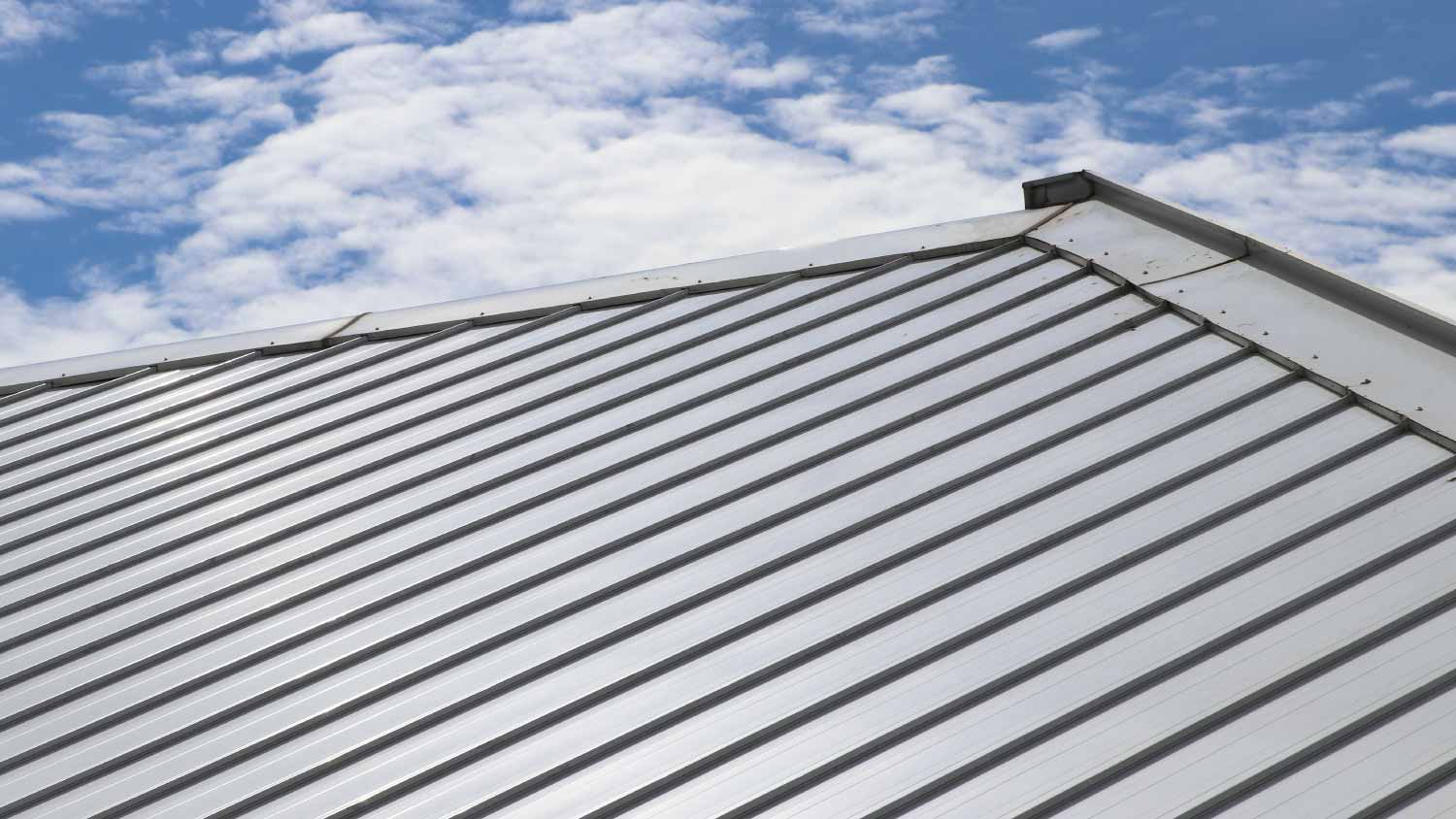Flat Roofing Materials: 6 Options to Consider For Your Home
Sleek design meets durability


Flat roof materials cost between $4 and $14 per square foot.
EPDM, TPO, and PVC are popular rubber material options.
Standing seam metal features the longest life span of up to 70 years with proper care.
Flat roofing is an increasingly popular choice in residential architecture, offering a sleek, modern aesthetic and practical advantages. The longevity of a flat roof largely depends on the materials used in its construction. Options for flat roofing materials range from traditional systems like modified bitumen to newer solutions like TPO and EPDM. Explore the benefits and challenges of six popular flat roofing materials.
What to Know About Flat Roofing on Residential Properties
Flat roofs are traditionally more common in commercial and industrial buildings but have increasingly found a place in residential architecture. They are appealing for mid-century modern homes, contemporary designs, and urban dwellings because of their sleek, minimalist aesthetic, which complements the clean lines and open spaces of modern architecture. These roofs are best in areas with milder climates where concerns about heavy snow or frequent rainfall are minimal.
Flat roofs can maximize usable space, inside and outside the home. Inside, homes have higher ceilings and more versatile interior layouts while outside the space can be utilized as rooftop terraces, gardens, or additional living areas. However, it’s important to choose a suitable roofing material that will work well with a flat roof design.
The many factors that play into choosing a roofing material may surprise you, such as durability, cost, style, and the climate in which you live. Many homeowners choose asphalt, but there are various types on the market. A roofer can advise you on the best materials for your home and region.
1. Ethylene Propylene Diene Monomer (EPDM)
EPDM stands for Ethylene Propylene Diene Monomer and is known for its durability, cost-effectiveness, and ease of installation. Made from synthetic rubber, EPDM roofing is highly resistant to UV rays, ozone, and weathering. The material is installed with adhesives or mechanical fasteners, reducing the risk of leaks. EPDM, which has a life span of up to 25 to 30 years, is flexible, which helps it withstand temperature fluctuations and structural movements.
2. Thermoplastic Polyolefin (TPO)

Thermoplastic Polyolefin (TPO) is highly regarded for its energy efficiency and durability. It’s a single-ply membrane that combines the flexibility of rubber with the durability of plastic, making it resistant to UV radiation, chemicals, and punctures. TPO roofs are commonly white to reflect sunlight and reduce heat absorption and are popular in areas with high sun exposure. This roofing material has a life span of 15 to 20 years and is heat-welded at the seams, creating a strong, watertight bond.
3. Polyvinyl Chloride (PVC)
Polyvinyl Chloride (PVC) is a durable and versatile material used for its excellent weather resistance and long life span, which can exceed 20 years. As a single-ply membrane, PVC is known for its strong seams, heat-welded to create a watertight and highly durable roofing system. It's resistant to chemicals, fire, and punctures, making it ideal for environments exposed to harsh conditions.
4. Modified Bitumen

Modified bitumen combines traditional asphalt with modern polymers to enhance flexibility, durability, and weather resistance. Installed in multiple layers, the material can be applied using hot asphalt, cold adhesives, or heat welding. This multi-layered approach provides excellent waterproofing and resistance to extreme temperatures. Modified bitumen is reinforced with fiberglass or polyester to further improve its strength and life span, which is around 20 years.
5. Built-Up Roofs (BUR)
Built-Up Roofing (BUR) is known for its durability and excellent waterproofing capabilities. The material is constructed by layering multiple plies of bitumen (asphalt or tar) alternated with reinforcing fabrics to create a thick, robust membrane. The final layer is covered with gravel or a reflective coating to protect against UV rays and extend the roof's life span, which averages 20 to 30 years. BUR is highly resistant to water, fire, and heavy foot traffic, making it ideal for flat roofs that require long-lasting protection.
6. Standing Seam Metal

Standing seam metal roofing is a durable and visually appealing option known for its long life span of 40 to 70 years. The material has excellent weather resistance and consists of continuous metal panels running vertically along the roof, with raised seams that interlock to create a watertight seal. These seams are elevated above the roof surface to prevent water infiltration, making the material highly effective against rain and snow. Made from steel, aluminum, or copper, standing seam roofing is resistant to fire, wind, and extreme temperatures.
Flat Roofing Material Cost
Depending on the material you choose, flat roofing replacement costs range between $4 and $14 per square foot ,or averages between $3,255 and $11,130 for a total project cost when hiring a local roofing contractor.
The cost to install TPO roofing averages between $4 and $14 per square foot or $6,500 and $24,000 total. When comparing TPO roofing versus EPDM, the price is similar between the two, with EPDM roofing cost averaging between $5 and $13 per square foot. Another rubber roofing installation cost to consider is PVC. EPDM versus PVC roofing have similar costs, with PVC averaging between $5.25 and $12.50 per square foot.
The cost of BUR and modified bitumen is on the lower end of the average. BUR can cost between $4 and $10 per square foot, while modified bitumen is slightly lower, costing between $4 and $8 per square foot. Using metal will cost between $3.25 and $14.25 per square foot.





- Roofers
- Metal Roofing
- Roof Repair
- Roof Inspection
- Vinyl Siding Repair Contractors
- Flat Roofing Companies
- Commercial Roofing
- Emergency Roofing Companies
- Leaky Roof Repair
- Metal Roof Repair
- Business Roof Repair
- Flat Roof Repair
- Tile Roof Repair
- Slate Roofers
- Rubber Roofers
- Roofing & Siding
- Metal Roof Installation
- Affordable Roofing
- Roof Sealing
- Attic Ventilation Contractors
- 7 Alternative Roofing Materials That You May Not Have Considered
- Pros and Cons of EPDM Roofing
- 13 Types of Roofing Materials and How to Choose the Right One
- EPDM vs. PVC Roofing: What’s the Difference Between These Roofing Materials?
- Bitumen vs Asphalt: Which Is Better for Your Roof?
- How to Install Metal Roofing Like a Pro
- 30 Common Roofing Mistakes You Need to Know
- Types of Metal Roofs: Materials, Styles, and Fasteners
- 7 Flat Roof Maintenance Tips to Help Avoid Repairs
- 2024 Metal Roof vs. Shingles Cost Comparison Guide











